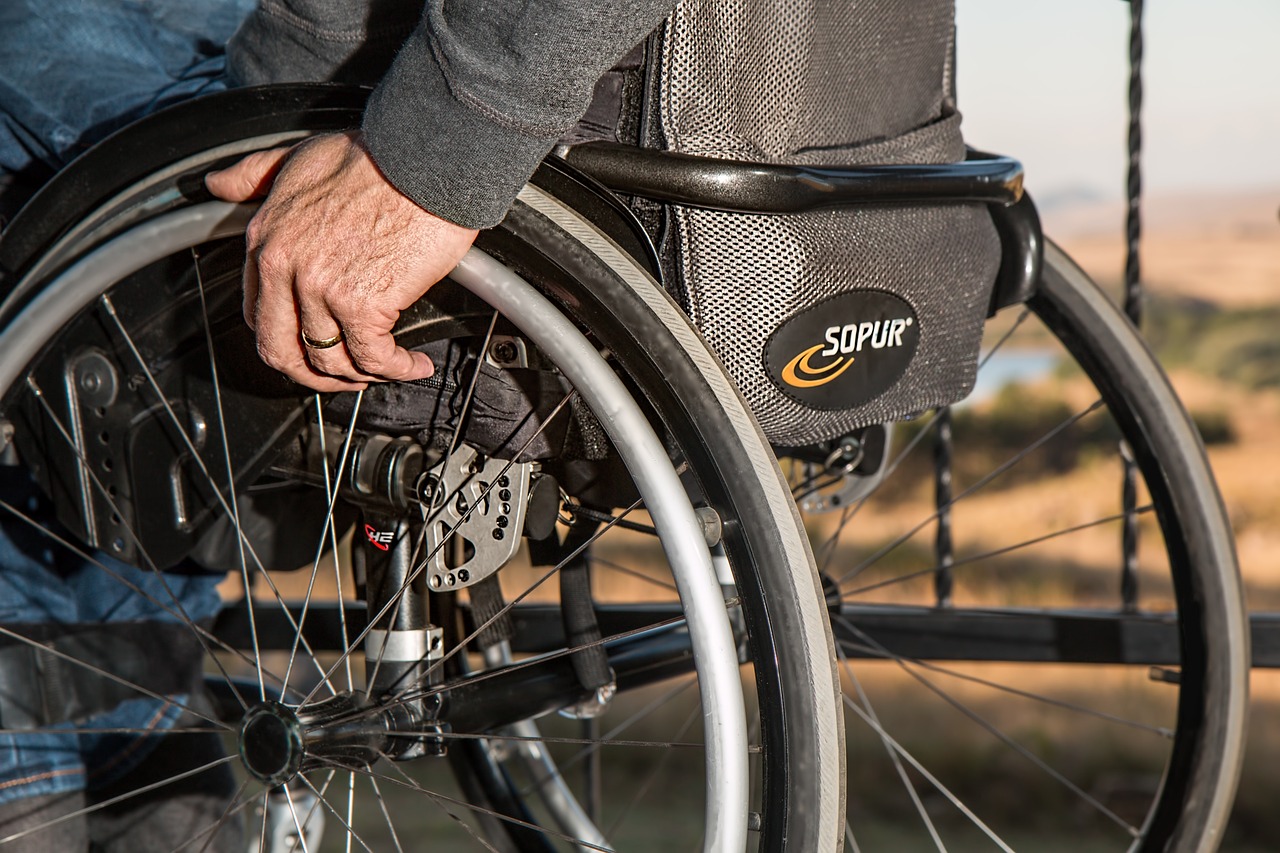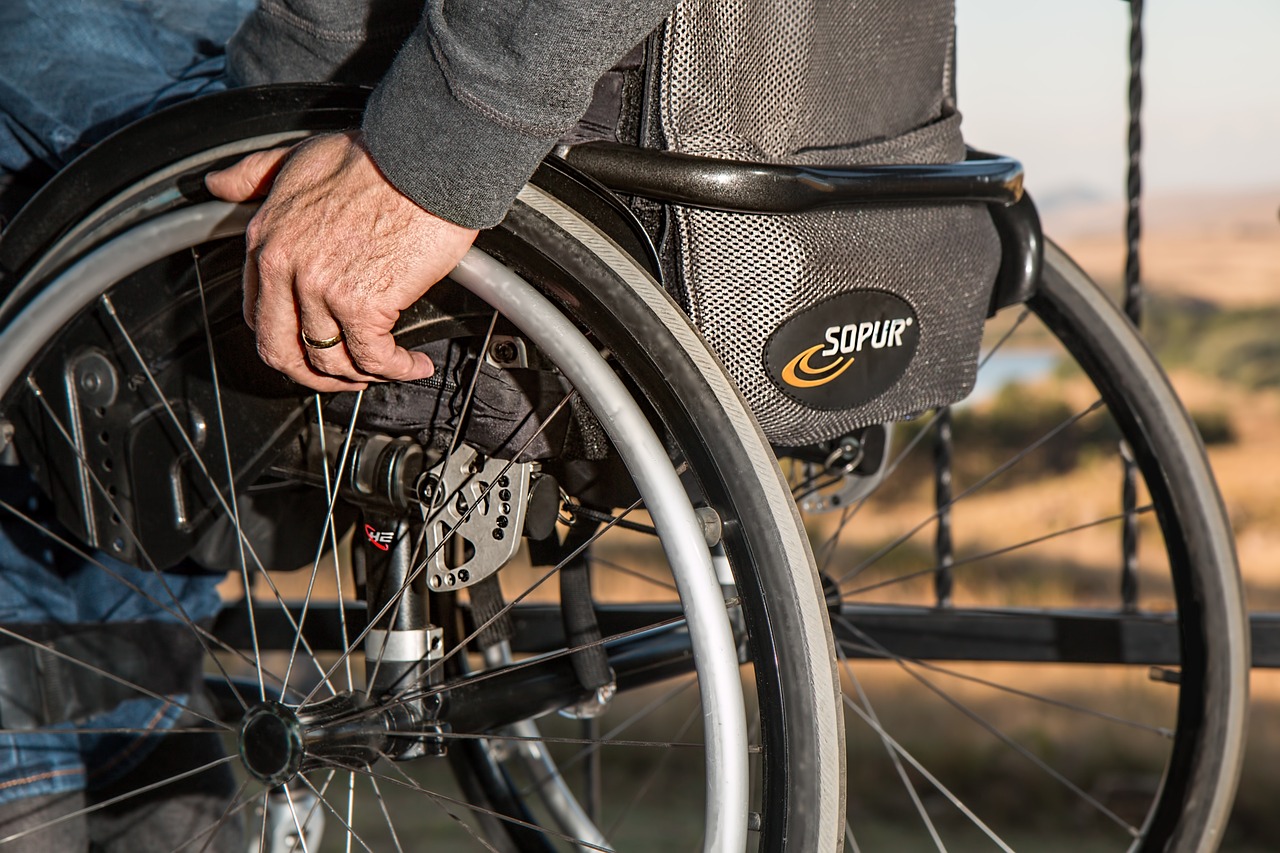In the bustling world of medical tourism, India emerges as a top contender for those seeking affordable knee replacement procedures without compromising on quality. In this article, we invite you to explore the thriving industry of healthcare and wellness in the heart of India. With its state-of-the-art facilities, world-class surgeons, and a rich cultural experience waiting beyond the hospital doors, India offers a compelling option for those seeking to regain mobility and rediscover life’s possibilities.

Why choose India for knee replacement surgery
Advanced healthcare infrastructure
India’s healthcare infrastructure has seen significant advancements in recent years, with state-of-the-art hospitals and medical facilities equipped with the latest technology. This ensures that patients undergoing knee replacement surgery in India have access to world-class healthcare services.
Experienced and skilled doctors
India is home to highly experienced and skilled orthopedic surgeons who specialize in knee replacement surgeries. These doctors have undergone rigorous training and have gained expertise in performing complex procedures, ensuring the best possible outcomes for patients.
Cost-effective treatment
One of the key reasons why many people choose India for knee replacement surgery is the cost-effectiveness of treatment. Medical expenses in India are significantly lower compared to other countries, especially in the case of orthopedic surgeries. This makes India an attractive destination for those seeking affordable yet high-quality healthcare.
Short waiting periods
In many countries, the waiting periods for knee replacement surgeries can be quite long, leading to prolonged pain and discomfort for patients. However, India offers much shorter waiting periods, allowing patients to undergo surgery and start their journey towards recovery sooner.
Quality care and personalized attention
Hospitals in India are known for providing quality care and personalized attention to patients. From the moment you arrive until your complete recovery, the healthcare professionals in India ensure that you receive individualized care, addressing all your concerns and providing effective solutions at every step of the way.
Beautiful and culturally rich destination
Choosing India for knee replacement surgery not only offers you access to top-notch medical care but also gives you an opportunity to explore the country’s rich cultural heritage and natural beauty. From the iconic Taj Mahal to the serene backwaters of Kerala, India has something to offer for everyone.
Understanding knee replacement surgery
Definition and types of knee replacement
Knee replacement surgery, also known as knee arthroplasty, is a surgical procedure that involves replacing a damaged or diseased knee joint with an artificial implant. There are two main types of knee replacement surgeries: total knee replacement (TKR) and partial knee replacement (PKR). In TKR, the entire knee joint is replaced, while in PKR, only the affected part of the knee joint is replaced.
Common reasons for knee replacement
Knee replacement surgery is typically recommended for individuals who experience chronic knee pain and disability due to conditions such as osteoarthritis, rheumatoid arthritis, and post-traumatic arthritis. Other reasons for knee replacement surgery include knee deformities, failed previous knee surgeries, and severe knee trauma.
Preparation for knee replacement surgery
Before undergoing knee replacement surgery, patients are required to undergo a series of preparations. This may include a thorough medical evaluation, blood tests, imaging studies, and consultations with the orthopedic surgeon and other healthcare professionals. Additionally, patients may need to make certain diet and medication adjustments to ensure a successful surgery.
Procedure and techniques
During knee replacement surgery, the damaged knee joint is removed and replaced with an artificial implant made of metal, plastic, or ceramic materials. The surgery is typically performed under general anesthesia, and an incision is made to access the knee joint. The surgeon then prepares the bones and attaches the artificial implant, ensuring proper alignment and stability.
Recovery and rehabilitation
After knee replacement surgery, patients are closely monitored in the hospital for a few days. Pain management techniques are employed to ensure maximum comfort. Physical therapy and exercises are initiated soon after surgery to aid in the recovery process and improve mobility. The duration of recovery varies from patient to patient, but most individuals can expect significant improvement in their knee function within a few months.

Choosing the right hospital and surgeon
Accreditation and certifications
When considering knee replacement surgery in India, it is crucial to choose a hospital that is accredited by recognized healthcare organizations. Accreditation ensures that the hospital meets international standards of patient care, safety, and quality. Additionally, certifications from reputable orthopedic associations add to the credibility and expertise of the hospital and its surgeons.
Hospital amenities and facilities
Apart from the medical expertise, it is important to consider the amenities and facilities offered by the hospital. Look for hospitals that have well-equipped operating theaters, modern diagnostic facilities, advanced rehabilitation centers, and comfortable accommodations for patients and their attendants. These factors contribute to a comfortable and conducive environment for recovery.
Surgeon’s experience and qualifications
The experience and qualifications of the orthopedic surgeon play a vital role in the success of knee replacement surgery. Research the surgeon’s credentials, including their education, training, and specialization in knee replacement procedures. Look for surgeons who have performed a significant number of knee replacement surgeries with successful outcomes.
Patient reviews and success rates
Reading patient reviews and testimonials can provide valuable insights into the quality of care provided by a hospital and its surgeons. Look for positive reviews and success stories from patients who have undergone knee replacement surgery in the hospital you are considering. Additionally, inquire about the hospital’s success rates and compare them with national and international benchmarks.
Communication and language barrier
For international patients considering knee replacement surgery in India, it is important to consider the language barrier and the hospital’s ability to provide effective communication. Look for hospitals that have dedicated international patient coordinators who can assist with language interpretation services and navigate the cultural differences to ensure a smooth and comfortable experience.
Cost comparison: India vs other countries
Average cost of knee replacement in India
Knee replacement surgery in India is significantly more affordable compared to many other countries. The average cost of knee replacement in India ranges from $5000 to $8000, depending on the type of surgery, hospital, and surgeon chosen. This cost includes the surgery, hospital stay, medications, and post-operative care.
Cost comparison with US, UK, and other countries
The cost of knee replacement surgery in countries like the United States and the United Kingdom can be exorbitant, often ranging from $20,000 to $40,000 or even more. Choosing India for knee replacement surgery can result in significant cost savings without compromising on the quality of care and treatment received.
Factors affecting the cost
Several factors contribute to the cost of knee replacement surgery in India. These include the complexity of the surgery, the type of implant used, the reputation of the hospital and surgeon, the location of the hospital, and additional services such as post-operative rehabilitation and physiotherapy.
Insurance coverage and medical tourism packages
Many insurance providers cover knee replacement surgeries, but it is essential to check the terms and conditions of your insurance policy. For those without insurance coverage, medical tourism packages are often available, which include the cost of surgery, accommodation, airport transfers, and other necessary services. These packages offer convenience and affordability for international patients.

Preparation for knee replacement surgery in India
Medical history and evaluations
Before undergoing knee replacement surgery in India, patients are required to provide their medical history and undergo a thorough evaluation. This helps the healthcare professionals assess your overall health condition and determine the appropriateness of surgery. It is important to provide accurate and detailed information to ensure the best possible outcome.
Consultations and pre-operative tests
Once the initial evaluation is complete, patients will have detailed consultations with the orthopedic surgeon and other healthcare professionals involved in the surgery. This is an opportunity to discuss any concerns, clarify doubts, and understand the surgical process in detail. Pre-operative tests such as blood work, X-rays, and MRI scans may also be conducted to gather further information.
Diet and medication adjustments
To ensure a successful surgery and speedy recovery, patients may be required to make certain diet and medication adjustments. This may include avoiding certain medications that can interfere with the surgery, adjusting the dosage of existing medications, and following a healthy diet rich in essential nutrients that promote healing.
Travel arrangements and accommodation
Prior to traveling to India for knee replacement surgery, it is important to make all necessary travel arrangements. This includes booking flights, arranging for visas, and organizing transportation to the hospital and accommodation. Many hospitals in India offer assistance with travel, including airport transfers and local transportation.
Visa and necessary documents
International patients traveling to India for knee replacement surgery are required to obtain a medical visa. The hospital or medical tourism agency can guide you through the visa application process and provide the necessary documentation to support your application. It is important to apply for the visa well in advance to avoid any last-minute complications.
The knee replacement procedure in India
General anesthesia and incision
Knee replacement surgery is performed under general anesthesia, ensuring that the patient remains unconscious and does not experience any pain during the procedure. Once the anesthesia takes effect, an incision is made to access the knee joint. The length and location of the incision may vary depending on the surgical technique used and the individual patient’s needs.
Implant selection and placement
The surgeon carefully selects the appropriate implant based on the patient’s needs and the specific requirements of the knee replacement surgery. The artificial joint components, including the femoral component, tibial component, and patellar component, are then meticulously placed and secured within the knee joint. The surgeon ensures proper alignment and stability to ensure optimal functioning of the implant.
Surgical techniques and approaches
Several surgical techniques and approaches can be employed during knee replacement surgery in India. Traditional open surgery involves a larger incision, while minimally invasive techniques utilize smaller incisions, resulting in reduced tissue damage and a faster recovery. Computer-assisted surgery and robotic-assisted techniques are also available in some hospitals, offering precise implant alignment.
Minimally invasive knee replacement
Minimally invasive knee replacement is a popular option in India, as it offers several benefits such as smaller incisions, reduced blood loss, shorter hospital stays, and faster recovery times. This approach utilizes specialized instruments and techniques to access and replace the knee joint, resulting in less trauma to the surrounding tissues.
Post-operative pain management
After knee replacement surgery, effective pain management is essential to ensure patient comfort and promote healing. Pain medications, both oral and intravenous, are administered as per the surgeon’s recommendation. Additionally, the use of ice packs, elevation of the leg, and physical therapy techniques can help minimize pain and swelling, enhancing the recovery process.
Recovery and rehabilitation process
Hospital stay and immediate post-operative care
Following knee replacement surgery in India, patients typically stay in the hospital for a few days to ensure close monitoring and necessary care. During this time, healthcare professionals provide pain management, administer medications, monitor the patient’s vital signs, and assist with activities of daily living. Regular check-ups and evaluations are conducted to monitor progress and address any concerns.
Physical therapy and exercises
Physical therapy plays a crucial role in the recovery and rehabilitation process after knee replacement surgery. Physical therapists work closely with patients to develop personalized exercise programs aimed at improving joint range of motion, strength, and flexibility. These exercises, along with gait training and mobility aids, help patients regain their independence and mobility.
Importance of follow-up appointments
After being discharged from the hospital, patients are required to attend regular follow-up appointments with their orthopedic surgeon. These appointments allow the surgeon to monitor progress, assess the success of the surgery, and address any post-operative concerns. Follow-up appointments also provide an opportunity to adjust the rehabilitation plan if necessary and ensure optimal recovery.
Assistive devices and mobility aids
During the recovery period, the use of assistive devices and mobility aids can significantly aid in regaining mobility and independence. These devices may include crutches, walkers, canes, or specialized knee braces. The healthcare professionals in India will guide and educate patients on the proper use of these devices to maximize their benefits.
Long-term lifestyle adjustments
Knee replacement surgery in India offers patients a new lease on life, but it also requires long-term lifestyle adjustments to ensure the longevity of the artificial joint. Maintaining a healthy weight, engaging in regular exercise, avoiding high-impact activities, and following a nutritious diet can all contribute to the long-term success of the knee replacement surgery.
Success rates and patient testimonials
Case studies and success stories
Numerous case studies and success stories highlight the effectiveness and positive outcomes of knee replacement surgery in India. These stories showcase the transformation experienced by patients, from living with chronic pain and limited mobility to regaining an active lifestyle and improved quality of life.
Testimonials from international patients
International patients who have chosen India for knee replacement surgery often share their testimonials, providing insights into their personal experiences. These testimonials highlight the exceptional medical care, positive interactions with healthcare professionals, and the warm hospitality extended by the hospital staff during their stay in India.
Long-term outcomes and patient satisfaction
Studies have shown that knee replacement surgeries in India have high success rates and result in excellent long-term outcomes. Patients experience significant pain relief, improved joint function, and enhanced quality of life after surgery. The high levels of patient satisfaction further emphasize the effectiveness and positive impact of knee replacement surgery in India.
Support groups and post-treatment support
Many hospitals in India offer support groups and post-treatment support programs for patients who have undergone knee replacement surgery. These support groups facilitate interaction with other patients who have had similar experiences, allowing individuals to share their challenges, successes, and advice. The availability of such support systems greatly contributes to the overall well-being and recovery of patients.
Risks and complications of knee replacement
Infection and blood clotting
Like any surgical procedure, knee replacement surgery carries certain risks. The most common complications include infection and blood clotting. However, with proper surgical techniques, strict adherence to infection control protocols, and post-operative monitoring, the risk of these complications can be minimized.
Implant-related risks and durability
Implant-related risks include implant loosening, wear, and dislocation. While artificial knee implants are designed to be durable and long-lasting, they may require revision surgeries in the future. Proper post-operative care, monitoring, and follow-up appointments can help detect potential implant-related issues early and prevent further complications.
Rejection and allergic reactions
In rare cases, patients may experience rejection reactions or allergic reactions to the materials used in the knee implant. These reactions can manifest as pain, swelling, or skin irritation. However, with advancements in implant materials, such reactions are extremely rare, and orthopedic surgeons in India carefully assess each patient’s medical history to minimize the risk of such complications.
Potential post-operative complications
Post-operative complications that can occur after knee replacement surgery include nerve or blood vessel damage, stiffness, persistent pain, and limited range of motion. Proper surgical techniques, close monitoring, and diligent post-operative care can help reduce the occurrence of these complications and address them promptly if they do occur.
Risk factors and preventive measures
Certain risk factors, such as obesity, smoking, diabetes, and previous joint infections, can increase the likelihood of complications after knee replacement surgery. By managing these risk factors and following the orthopedic surgeon’s pre-operative instructions and post-operative care guidelines, patients can significantly reduce the chances of complications and ensure a successful recovery.
Final thoughts: The journey towards mobility
Considering the financial aspect
When contemplating knee replacement surgery, it is important to consider the financial aspect, especially for international patients. India offers a cost-effective solution without compromising on the quality of care and treatment received. By choosing India for knee replacement surgery, patients can save a significant amount of money while gaining access to top-notch healthcare services.
Embracing the transformation
Knee replacement surgery in India offers a life-changing opportunity to regain mobility, alleviate pain, and improve overall quality of life. Embracing the transformation and looking forward to a pain-free and active lifestyle are crucial aspects of the journey towards recovery.
Choosing the right healthcare partner
Choosing the right hospital and surgeon in India is paramount to the success of knee replacement surgery. Researching and selecting a hospital with a strong reputation, experienced surgeons, and positive patient reviews is essential. Ensuring effective communication and personalized attention throughout the process helps patients feel confident and supported in their decision.
Regaining mobility and quality of life
Knee replacement surgery in India has revolutionized the lives of countless individuals, enabling them to regain mobility and enjoy an improved quality of life. From the initial consultation to the post-operative rehabilitation process, India’s advanced healthcare infrastructure, experienced surgeons, and cost-effective treatments provide a comprehensive solution for individuals seeking pain relief and restored functionality.
